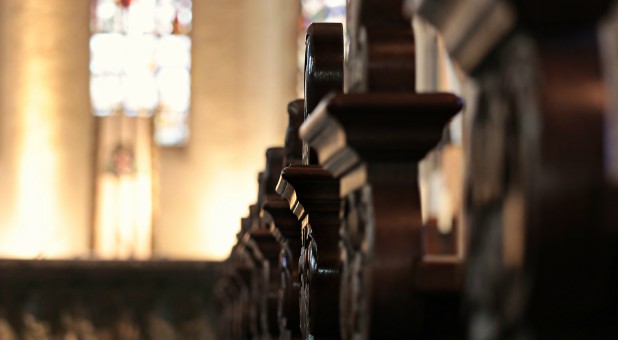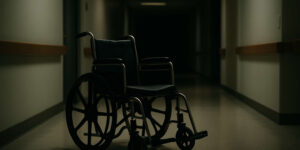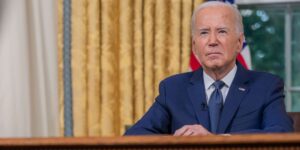Report: Bishops Covered Up Decades of Priests’ Sexual Abuse
Pennsylvania Attorney General Josh Shapiro has released a more than 1,300-page grand jury report detailing allegations of widespread sexual abuse of more than 1,000 children by Catholic priests in the state, naming hundreds of clerics accused of misconduct over 70 years and accusing church officials of a “systemic” cover-up.
Shapiro unveiled the report at a news conference Tuesday (Aug. 14) attended by many alleged abuse survivors that began with some of them painfully and sometimes tearfully recounting in a video the horrifying details of their abuse and accusing the church of protecting predators.
The attorney general said the report exposes a “systematic cover-up by senior church officials in Pennsylvania and the Vatican.”
The report is the result of an 18-month investigation spearheaded by Shapiro that examined six of the state’s eight dioceses. The release was delayed by a flurry of legal challenges from some of the more than 300 clergy named in the report, but the Pennsylvania Supreme Court ruled in July that it could be released provided that some details were redacted.
The accusations that survived the redactions include priests asking a young boy to strip naked and photographing him while comparing him to Christ on the cross; the rape of boys and girls as young as 7 years old, including an instance in which a priest raped a girl in a hospital room after she had her tonsils taken out; and a priest who impregnated his rape victim and arranged an abortion.
“There have been other reports on child sex abuse in the Catholic Church, but never on this scale,” Shapiro said. He also addressed the redactions: “Let me be very clear: My office is not satisfied with the release of a redacted report. Every redaction tells an incomplete story of abuse that deserves to be told.
“We will fight vigorously to remove every redaction,” he said, noting that oral arguments on challenges brought by 11 of those named but not charged with a crime will begin Sept. 26.
“Unlike the Catholic Church, and some in law enforcement, we hear you. And we believe your truth,” Shapiro said.
Shapiro also said that the investigation relied heavily on the church’s “secret archives,” a term Catholic leaders used to refer to records documenting the abuse that sat “just feet from the bishop’s desk.”
“We should emphasize that, while the list of priests is long, we don’t think we got them all,” the report reads. “We feel certain that many victims never came forward, and that the dioceses did not create written records every single time they heard something about abuse.”
Shapiro noted that despite the length of the report, the 23 grand jurors acknowledge that “as a consequence of the cover-up, almost every instance of abuse we found is too old to be prosecuted.”
“Due to the churches’ manipulation of our weak laws in Pennsylvania, too many predators are out of reach,” Shapiro said.
But not all: Shapiro said priests in Greensburg and Erie, Pa., are currently facing charges of abusing children in the state; one of the priests pleaded guilty earlier this year.
In addition to allegations of abuse—many of which were already public—the report accuses high-ranking church officials of covering up the abuse.
“Priests were raping little boys and girls, and the men of God who were responsible for them not only did nothing; they hid it all. For decades,” the report reads.
The archbishop of Washington, D.C., Cardinal Donald Wuerl, who previously served as bishop of Pittsburgh, sent a letter to clergy on Monday ahead of the report’s release.
“While I expect that this report will be critical of some of my actions, I believe the report also confirms that I acted with diligence,” Wuerl wrote. He said that when he learned of instances of abuse upon taking his position in Pittsburgh, it moved him “not simply to address these acts, but to be fully engaged, to meet with survivors and their families, and to do what I could to bring them comfort and try to begin a process for healing.”
The report notes that Wuerl sent a letter to the Vatican in 1989 arguing that parishioners have a right to know if a priest accused of child sex abuse had been reassigned to their parish, but that he also allegedly approved a request two years later to reassign a priest—the Rev. Ernest Paone—accused of child sex abuse.
“Above all else, (bishops) protected their institution, at all cost,” Shapiro said.
The U.S. Conference of Catholic Bishops also released a statement responding to the report.
“As a body of bishops, we are shamed by and sorry for the sins and omissions by Catholic priests and Catholic Bishops,” read the statement signed by USCCB President Cardinal Daniel N. DiNardo of Galveston-Houston and Bishop Timothy L. Doherty of Lafayette, Ind., committee chairman for the USCCB’s Protection of Children and Young People.
Shapiro called on bishops to adopt and support four reforms outlined in the report: the elimination of the criminal statute of limitations for sexually abusing children; creation of a longer civil window in the state so older victims can sue for damages; clarification of the penalties for continuing to fail to report child abuse; and disallowing civil confidentiality agreements from covering communications with law enforcement.
Meanwhile, the six dioceses have pledged to publish the list of priests accused of sexually abusing children in their region, and some, including Greensburg and Harrisburg, already have. Bishop Ronald W. Gainer of Harrisburg has also ordered that the names of all of its bishops since 1947—the beginning of the grand jury’s investigation—be stripped from all church buildings in the diocese. {eoa}
© 2018 Religion News Service. All rights reserved.







































